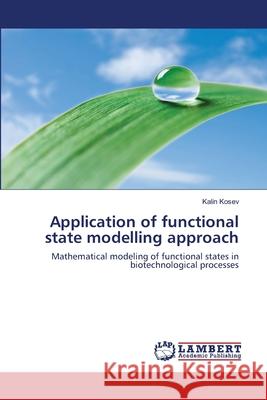Application of functional state modelling approach » książka
Application of functional state modelling approach
ISBN-13: 9783659407239 / Angielski / Miękka / 2013 / 52 str.
Biotechnological processes have very large application in very different fields such as food industry, pharmacology, environmental application and etc. They are characterized by a complicated structure of organization and independent characteristics, which determine their nonlinearity and non-stationary. In many cases, the globally valid conventional numeric models, which describe the overall process behavior cannot be used in on-line monitoring and control, either because they do not describe the process well enough or contain too many poorly known parameters. In this book a multiple-model approach, and in particular - modelling approach based on functional state decomposition, to cope with strongly nonlinear and time-varying systems, is presented. The functional state concept could be applied in modelling of E. coli cultivation processes as an alternative for the conventional "global" modelling. It is difficult to develop "global" models, which are valid for all different process phases. Although structured models are known to describe the E. coli cultivation process well, they are quite complex to use in industrial-scale production in contrast to "local" models.
Biotechnological processes have very large application in very different fields such as food industry, pharmacology, environmental application and etc. They are characterized by a complicated structure of organization and independent characteristics, which determine their nonlinearity and non-stationary. In many cases, the globally valid conventional numeric models, which describe the overall process behavior cannot be used in on-line monitoring and control, either because they do not describe the process well enough or contain too many poorly known parameters. In this book a multiple-model approach, and in particular - modelling approach based on functional state decomposition, to cope with strongly nonlinear and time-varying systems, is presented. The functional state concept could be applied in modelling of E. coli cultivation processes as an alternative for the conventional "global" modelling. It is difficult to develop "global" models, which are valid for all different process phases. Although structured models are known to describe the E. coli cultivation process well, they are quite complex to use in industrial-scale production in contrast to "local" models.











